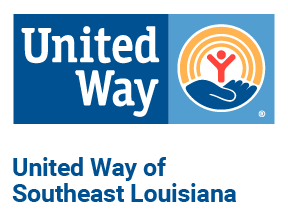United Way of Southeast Louisiana is doubling down on our efforts to increase pathways to high-wage jobs in Southeast Louisiana. As a new partner with the Louisiana Department of Family and Children Services, United Way will now facilitate the reimbursements of Supplemental Nutrition Assistance Program Employment and Training (SNAP E&T) funding to local nonprofit partners providing job search, education, and vocational training services.
Our new partnership will draw down millions of federal grant dollars into our community to assist unemployed individuals secure livable wages, and underemployed individuals obtain additional skills to advance their careers.
Nearly 70 percent of jobs in Louisiana pay less than $20 an hour, with most paying less than $15. While the economy and unemployment rate show signs of improvement, the fact is, our hardworking neighbors are still struggling to make ends meet in low-wage jobs. Without enough income to cover the basic household survival budget, families are forced to make difficult decisions – put food on the table or pay the light bill; make rent or cover prescriptions.
The future success of our communities is directly tied to the financial stability of the most vulnerable among us. Bringing additional SNAP E&T funding to Southeast Louisiana will strengthen our community and our region’s economy by building a more engaged and skilled workforce and minimizing the pressures on social services.
This momentous advancement in our work not only leverages our donors’ dollars to create more significant impact but also ensures that said impact is meaningful and produces real, lasting change in the lives of ALICE workers struggling to make ends meet. Ultimately, with more training and education and higher paying jobs, “ALICE workers can better support their families, be more engaged in their communities, and reduce their needs for SNAP benefits.”
Our investment in SNAP E&T also aligns with our work around prisoner re-entry and breaking the cycle of poverty to prison and back. Data suggests as many as 75 percent of people formerly in prison are still jobless up to a year after release, even those actively job searching. Expanded access to employment training programs will help increase the chances of successful re-entry for these individuals. With recent bipartisan support for criminal justice reforms that remove barriers to employment for returning citizens, this partnership is very timely.
Moreover, nonprofits that contract with United Way to receive reimbursements will save essential funding and time that is required to process SNAP E&T funding on their own. Those savings can translate into increased organizational capacity and expanded services and offerings.
I encourage you to read more about the specifics of SNAP E&T program requirements and United Way’s new partnership with DCFS. If you’re a nonprofit interested in applying for SNAP E&T reimbursements, please contact Jamene Dahmer at JameneD@UnitedWaySELA.org.
More nonprofits receiving reimbursements means more individuals participating in employment and training programs and brighter futures for all.

